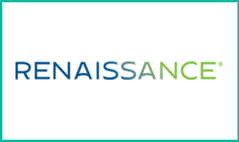
This year’s report finds that literacy advocates have their work cut out for them: Nearly half of students read less than 15 minutes per day, while research shows that double that time—30 minutes or more—is linked with accelerated reading achievement gains. However, reading time isn’t consistent across all grades. It peaks in elementary school, then begins to decline after fifth grade and never recovers. In high school, the typical student is reading no more than 10 minutes per day.
To help educators and families encourage students to read, the report offers information about the most popular books for each grade, cross-curricular lists on topics such as science and social-emotional learning, and tips on how to help students maximize the effects of the time they do spend reading. Reflecting students’ growing access to digital texts, the report also highlights some of students’ favorite digital reads in each grade. New to this year’s report, a Lexile® text complexity measure is included with each title, in addition to an ATOS® reading level, to help educators find texts at the “just-right” reading level for each of their students.
Other key findings of the report include:
- There is an average 12,000-word gap between students who read 30 minutes or more each day and those who read for less than 15 minutes a day;
- Students who read an average of 30 minutes or more each day make nearly double the percentile rank improvements of students who read less than 15 minutes per day; and
- Students typically read at the bottom of recommended text complexity recommendations for their grade and end up far below the levels required for college and career preparation.
“Educators and parents need data to understand students’ learning needs related to reading,” said Malbert Smith, the CEO, president, and co-founder of MetaMetrics. “The What Kids Are Reading report offers great insight into student reading habits. Now that the report includes Lexile measures and more states than ever before are reporting Lexile measures for their students, the data has even further relevance.”
Throughout 2019, Renaissance will offer blog posts that delve into additional data on topics not included in the report, such as:
- Comparisons of state-specific data;
- Nonfiction and student reading;
- Additional cross-curricular lists; and
- The importance of reading at the appropriate level of difficulty and complexity.
The full report is available free of charge at Renaissance.com/WKAR, along with additional tools including a Custom Report Builder tool that uses filters such as state, grade, difficulty level, and more.
About Renaissance
Renaissance® is a global leader in pre-K–12 educational technology, enabling teachers, curriculum creators, and educators to drive phenomenal student growth. Renaissance’s solutions help educators analyze, customize, and plan personalized learning paths for students, allowing time for what matters: creating energizing learning experiences in the classroom. Founded by parents, upheld by educators, and enriched by data scientists, Renaissance knows learning is a continual journey—from year to year and for a lifetime. Our data-driven, personalized solutions are currently used in over one-third of U.S. schools and more than 80 countries around the world. For more information, visit Renaissance.com.












